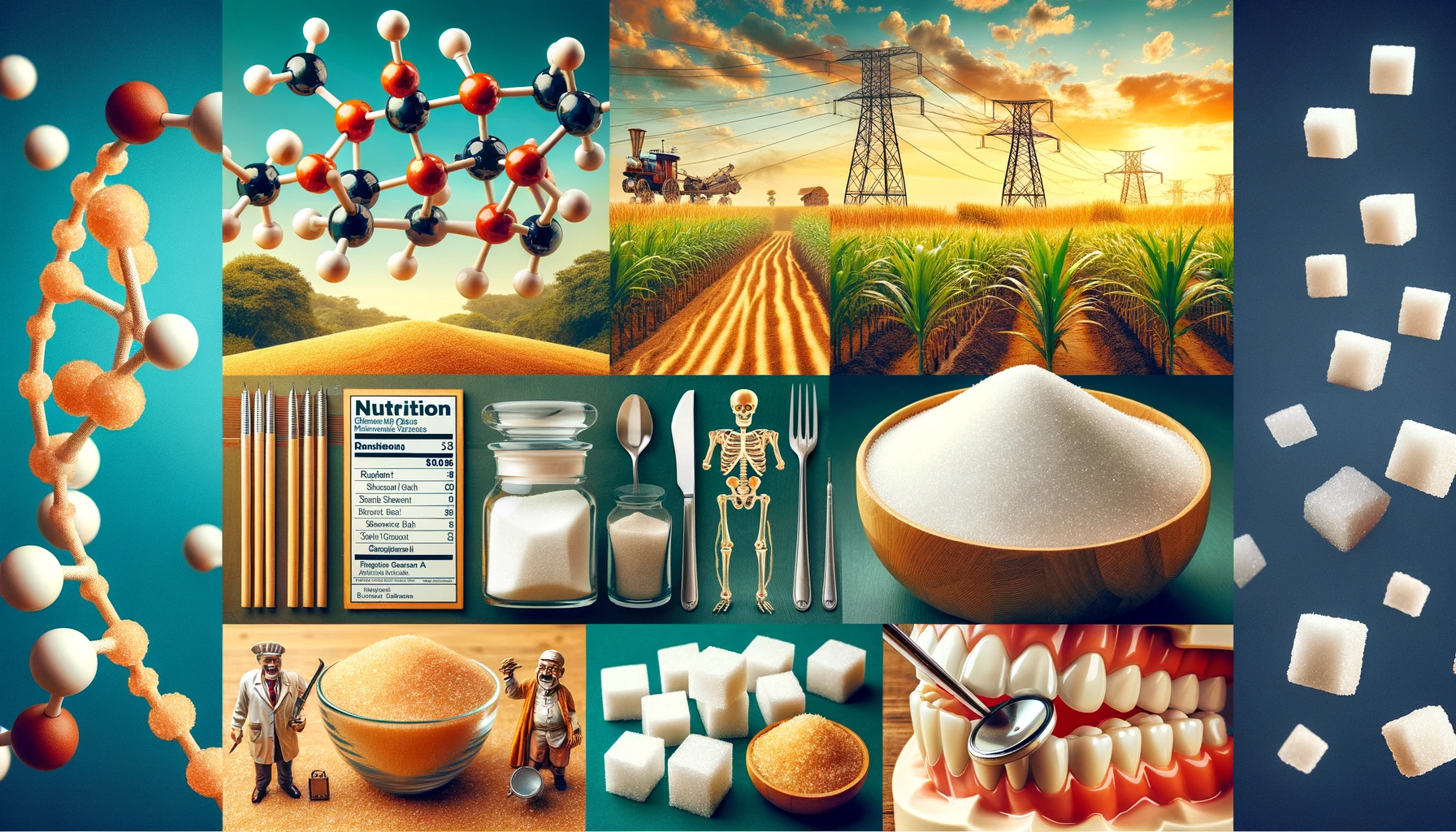Introduction
Sugar is a ubiquitous ingredient in our daily lives, often hiding in plain sight within our favorite foods and beverages. While it may satisfy our sweet cravings, there is a growing concern about its impact on our health. In this article, we’ll delve into the intricate details of how sugar affects your health, shedding light on the various ingredients that make up this sweet temptation.
I. Understanding the Types of Sugar
When discussing the effects of sugar on health, it’s essential to first understand the different types of sugar. Not all sugars are created equal. Here’s a breakdown:
1.1. Natural Sugars
- Fruit Sugar (Fructose): Found naturally in fruits and honey.
- Milk Sugar (Lactose): Present in milk and dairy products.
1.2. Added Sugars
- Table Sugar (Sucrose): Commonly used in baking and as a sweetener.
- High-Fructose Corn Syrup (HFCS): A prevalent sweetener in processed foods and soft drinks.
- Agave Nectar: Often marketed as a healthier alternative but still a type of added sugar.
II. Sugar and Your Body
Now that we’ve identified the different types of sugar, let’s explore how sugar affects your body once consumed.
2.1. The Sugar Digestion Process
- Mouth and Saliva: Amylase starts breaking down starches into sugars.
- Stomach: Sugars are further broken down by stomach acid.
- Small Intestine: Enzymes work to break down sugars into glucose, which is then absorbed into the bloodstream.
2.2. The Blood Sugar Rollercoaster
- Insulin Release: When you consume sugar, your body releases insulin to help regulate blood sugar levels.
- Energy Spikes and Crashes: Rapid sugar consumption leads to quick energy spikes followed by crashes, leaving you feeling tired and craving more sugar.
III. The Health Implications of Excessive Sugar Consumption
Excessive sugar consumption can lead to a wide range of health issues. Let’s explore them in detail.
3.1. Weight Gain and Obesity
- Caloric Density: Sugar is high in calories and lacks nutritional value, making it easy to overconsume.
- Increased Appetite: Sugar can disrupt hunger-regulating hormones, leading to increased food intake.
3.2. Type 2 Diabetes
- Insulin Resistance: Frequent sugar intake can lead to insulin resistance, a precursor to diabetes.
- Blood Sugar Management: Sugar consumption can cause erratic blood sugar levels.
3.3. Heart Disease
- Cholesterol Levels: High sugar intake may increase triglyceride levels and decrease HDL (good) cholesterol.
- Blood Pressure: Sugar can contribute to high blood pressure, a risk factor for heart disease.
3.4. Dental Health
- Tooth Decay: Sugar feeds harmful bacteria in the mouth, leading to cavities and gum disease.
IV. The Hidden Sugar Trap
Sugar can lurk in unexpected places. It’s crucial to be vigilant about hidden sugars in your diet.
4.1. Reading Nutrition Labels
- Look for Sources: Check for ingredients like sucrose, HFCS, and other syrups.
- Check Serving Sizes: Sugar content can be deceiving, especially if the serving size is small.
4.2. Processed Foods
- Sauces and Condiments: Ketchup, BBQ sauce, and salad dressings often contain added sugars.
- Breakfast Cereals: Many cereals marketed as healthy are loaded with sugar.
V. Tips for Reducing Sugar Intake
Reducing your sugar intake is a step towards a healthier lifestyle. Here are some practical tips:
5.1. Opt for Natural Sweeteners
- Honey and Maple Syrup: Use these natural sweeteners in moderation for added flavor.
- Stevia and Monk Fruit: These non-caloric sweeteners can be an excellent sugar substitute.
5.2. Choose Whole Foods
- Fruits and Vegetables: Embrace whole, unprocessed foods rich in fiber to curb sugar cravings.
- Whole Grains: Choose whole grains over refined grains to avoid hidden sugars.
5.3. Limit Sugary Beverages
- Water: Make water your primary beverage, and limit soda, energy drinks, and sugary juices.
Conclusion
Understanding how sugar affects your health and recognizing its various forms can empower you to make healthier dietary choices. By reducing your sugar intake and making informed decisions about the foods you consume, you can take a significant step toward a healthier and more fulfilling life. Your health is worth it!
